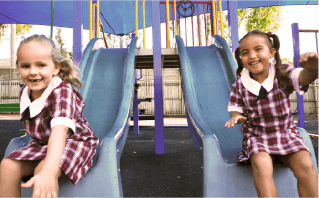
Body image is a hot topic amongst parents and their children. No matter what society tells us, it’s hard to not feel insecure or uncomfortable in our own skin at times. Kids are becoming body conscious very early these days. Possibly because of different types of media and easy access to it. The good news is that there are ways to help your child learn to love their body, even when they’re bombarded with images of “perfect” bodies all around them. Here are some tips to get started.
Help Your Child Love Their Bodies?
While we all think our kids are beautiful, reassuring them of that may not be particularly effective.
Why telling our kids they are beautiful doesn’t work
Body image is the perception a person has of their physical self AND the thoughts and feeling that result from that perception.
As such, body image is not one unidimensional construct. It is made up of four aspects:
- Perceptual body image: how we see our bodies
- Affective body image: how we feel about our body
- Cognitive body image: how we think about our body
- Behavioural body image: how we behave as a result of our perceptual, affective, and cognitive body image.
When our body image is positive, we are able to accept, appreciate, and respect our bodies. We won’t necessarily avoid feeling insecurities or think our bodies are perfect. Still, we are able to acknowledge any insecurities for what they are and believe that our bodies are good for us.
Three components to having a positive body image
According to clinical psychologist Elizabeth Halsted, there are three components to having a positive body image:
- Self-esteem: valuing ourselves and believing that others appreciate us and enjoy our company.
- A positive attitude: accepting our strengths and our weaknesses, and avoiding three negative attitudes:
- Perfectionism: holding ideals or standards that are impossible (or next to impossible) to achieve.
- Comparing: making social comparisons with others.
- Being highly critical or judgmental: the more critical and judgmental we are of others, the more likely we are to be critical and judgmental of ourselves.
- Emotional stability: maintaining a healthy connection to our thoughts and feelings while also being able to share our experiences with others (Halsted, 2016).
So, what should we tell our kids instead of “you are beautiful?”
Focus on appreciating and respecting what your body can do. Say, “We have so many reasons to love our bodies. Our bodies can do so much for us. My body can walk, hug you, pick you up… What can your body do?” Help your child find all the wonderful things their body can do.
Avoid negative self-talk. We become what we tell ourselves repeatedly. If your child is constantly making negative comments about their body, help them create positive affirmations. Remember, they need to believe in the affirmation. Going from “I’m the ugliest child on the planet” to “I’m the most beautiful child on the planet” won’t work. Find an affirmation that is a little more positive but believable and build up from there.
Say positive things to yourself. Use the affirmations you created above, every day. Stick it to the mirror, repeat it with your child often.
Set positive, health-focused goals rather than weight loss-focused goals. When we love someone, we wish good things for this person. The same should apply to our bodies. If you love your body, you should look after it with all the good stuff such as nourishing foods, exercise and compassion.
Be a role model. Our kids notice the things we tell ourselves. Pause and think about the things you have been telling yourself about your body. Have you been kind to yourself, or are you looking for all the imperfections every time you walk past a mirror? If so, remind yourself your body was home for your child, and there is nothing more powerful than that.
Parents, it’s important to help your children love their bodies. It can be tough being a kid and not feeling confident in yourself, but your support can make all the difference.
You can use the Superpower Kids My Positive Body printable to teach your child body positivity.
Related Articles
AMA: Do Positive Affirmations Work?
AMA: How to Talk to Your Child About Disability
AMA: Working Through Self-Esteem Issues with Children




